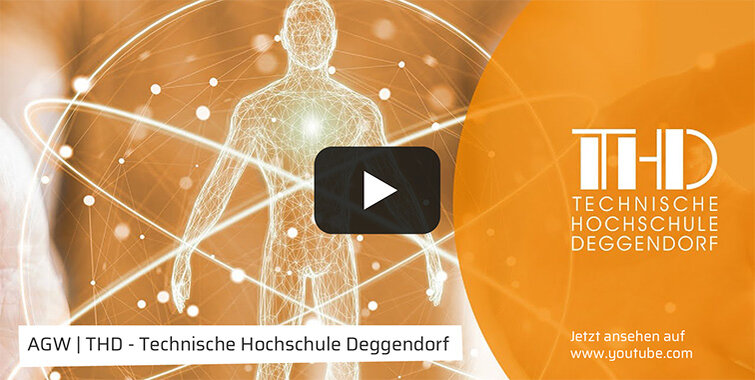The highest responsibility in the rescue services
with your bachelor's degree emergency paramedic (B.Sc.)
We provide support for internships, starting a job in a company, or setting up your own business

An interface profession of the future with the highest responsibility in working with people in emergency situations
#emergencyservices #emergencymedicine #rescuesciences #acutemedicine #emergencycare
#healthcareresearch #prehospitalcare
Are you passionate about emergency services and dedicated to providing the best possible acute medical care to people in emergencies? Expand your expertise and practical experience as a trained emergency paramedic by pursuing a Bachelor's degree in Emergency Paramedic. Enhance your skills with scientifically grounded knowledge in advanced areas such as preventive emergency services, managing frequent users, or health literacy. Equip yourself with additional diagnostic and therapeutic skills to meet the increased demands on future emergency services.
In rural areas and times of shortages in emergency and general medical capacities, you, as a emergency paramedic, will play a crucial key role in modern healthcare in Germany.
emergency paramedic Profile
Degree: Bachelor of Science (B.Sc.)
Standard Study Period: 7 Semester
ECTS-Points: 210
Skills acquired during the training to become a emergency paramedic are recognized with up to 105 ECTS credits in accordance with Article 86, Paragraph 2 of the BayHIG
Start of study programme: Winter semester
Location: Deggendorf
Teaching language: German
Application Period: 15 April - 15 September
Eligibility requirements:
- University qualification from Germany (for international qualifications, please check the DAAD website) OR 3 years of training in a healthcare profession and at least 3 years of relevant professional experience at the start of the degree programme.
- Training to become a state-recognised emergency paramedic or comparable qualifications. The examination board decides on the equivalence of the qualifications. Proof is provided by submitting the final certificate.
- Language Requirements
Prerequisites: All knowledge from the vocational training as a emergency paramedic.
Continuing study programmes:
Student union fee:
- No tuition fees, only student union fee
- International students from non-EU/EEA countries are required to pay service fees for each semester. Click here to read about our service fees.
Contact:
- General information about studying at DIT: Advice & support
- Information for first semester
career prospects
As a emergency paramedic, you significantly contribute to relieving the conventional emergency services, create new resources within preventive emergency services, and help fill gaps for comprehensive emergency care.
Advanced knowledge in emergency and acute medical diagnostics and the treatment of specific medical conditions enable you to make independent decisions and take action in selected emergency and acute medical situations, as well as in prevention by incorporating the network and structures of the healthcare system. You will also gain solid pharmacological knowledge as a prerequisite for potential specialized medical authority. Furthermore, the cross-disciplinary skills in communication, medicine, and nursing acquired during your studies equip you to take on a leadership position in a response vehicle and at the emergency site, advising, structuring, and supporting the respective team.
Course of Study
The Bachelor's degree programme Emergency Paramedic comprises seven semesters. If organised accordingly, an accompanying occupation is possible. In addition to university qualification, training as a state-certified emergency paramedic or an equivalent qualification is required. Knowledge acquired during vocational training can be easily recognized. The admission requirements and the study and examination regulations apply.
Lectures in the fields of pathophysiology, pharmacology, diagnostics, and emergency medicine skills, as well as general medical foundations and legal principles, are combined with integrated seminars for direct practical application and deeper understanding.
programme content
Overview about the courses, SWS (semester hours per week) and ECTS (European Credit Transfer and Accumulation System) in the Bachelor's degree Emergency Paramedic.
Contents marked with *: Creditable achievements from training to become a state-recognised emergency paramedic or comparable qualifications. In addition, modules from other degree programmes (e.g. scientific foundations etc.) can be credited after an equivalence check.
|
1 semester |
SWS | ECTS | |
| Scientific foundations 1, propaedeutics NCCR | 3 | 5 | |
| Pathophysiology | 3 | 5 | |
| Applied Health Sciences/Health Literacy | 3 | 5 | |
| Fundamentals of Pharmacology* | 3 | 5 | |
| Anatomy/Physiology* | 3 | 5 | |
| Practical Exercises 1* | 3 | 5 | |
|
2 semester |
SWS | ECTS | |
| Pharmacology specialisation | 3 | 5 | |
| (General) Medical Fundamentals 2 | 3 | 5 | |
| Integrated seminar 1 | 3 | 5 | |
| (General) Medical Fundamentals 1* | 3 | 5 | |
| Organisation and Operational Theory* | 3 | 5 | |
| Practical Exercises 2* | 3 | 5 | |
|
3 semester |
SWS | ECTS | |
| Compulsory elective subject 1 | 3 | 5 | |
| Specialised emergency medical diagnostics | 3 | 5 | |
| Integrated seminar 2 | 3 | 5 | |
| Team, resource, management and quality management* | 3 | 5 | |
| General Emergency Medicine* | 3 | 5 | |
|
3 | 5 | |
|
4 semester |
SWS | ECTS | |
|
3 | 5 | |
|
3 | 5 | |
| Compulsory elective subject 2 | 3 | 5 | |
| Social Science and Humanities Foundations* | 3 | 5 | |
| Vocational and Political Studies* | 3 | 5 | |
| Practical Exercises 4* | 3 | 5 | |
|
5 semester |
SWS | ECTS | |
| Emergency medical competence 1 | 3 | 5 | |
| Emergency medical competence 2 | 3 | 5 | |
| Compulsory elective subject 3 | 3 | 5 | |
| Ethics* | 3 | 5 | |
| Hygiene* | 3 | 5 | |
| Practical Exercises 5* | 3 | 5 | |
|
6 semester |
SWS | ECTS | |
| Legal basis | 3 | 5 | |
| Scientific principles 2, statistics | 3 | 5 | |
| Integrated seminar 3 | 3 | 5 | |
| Special Emergency Medicine* | 3 | 5 | |
| Interdisciplinarity in Action* | 3 | 5 | |
| Practical Exercises 6* | 3 | 5 | |
|
7 semester |
SWS | ECTS | |
| Bachelor thesis | 10 | ||
| Scientific colloquium | 2 | 5 | |
| Leadership skills in emergency situations* | 3 | 5 | |
| Dealing and Communicating with Relatives and others* | 3 | 5 | |
| Practical Exercises 7* | 3 | 5 |




